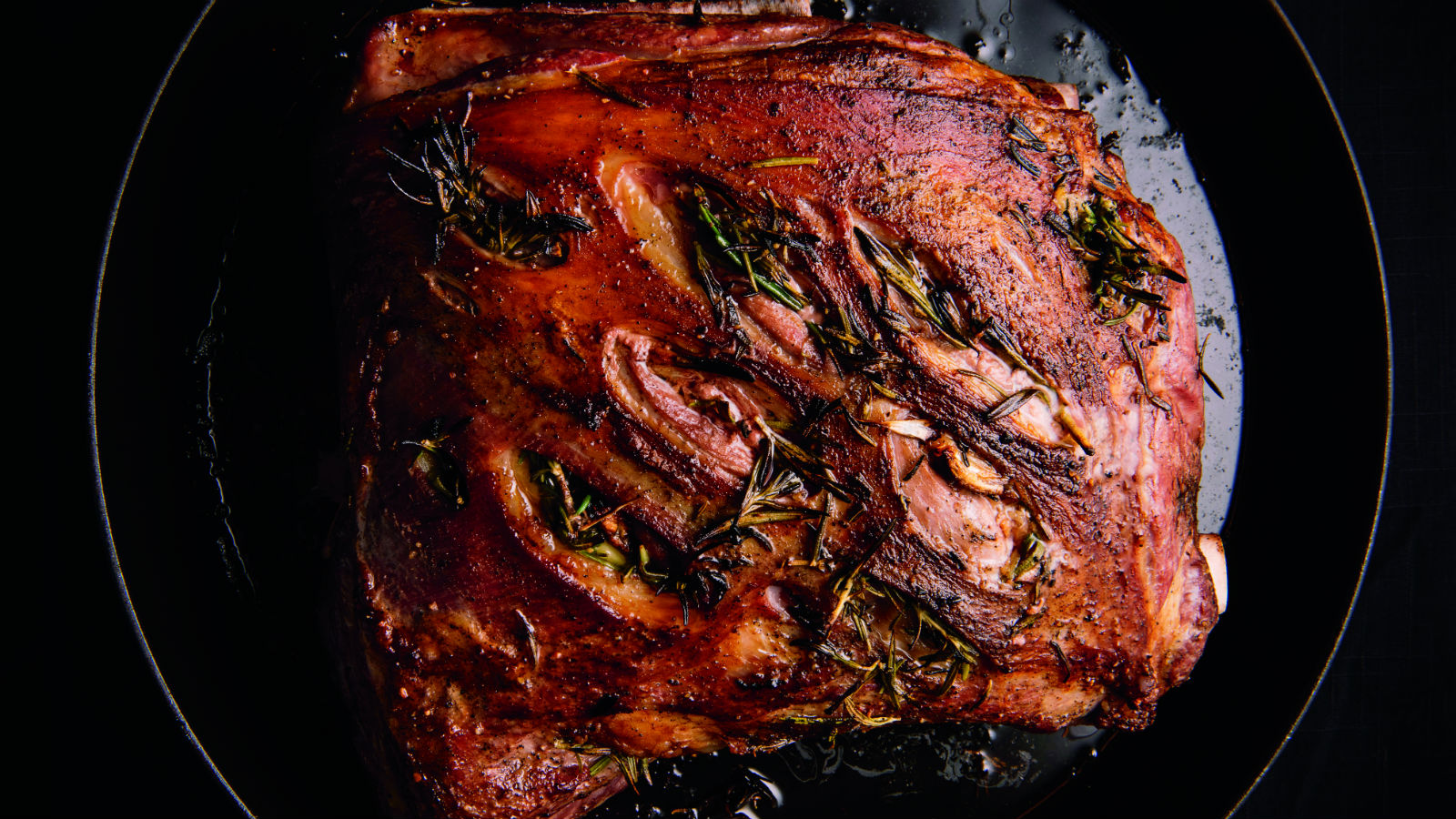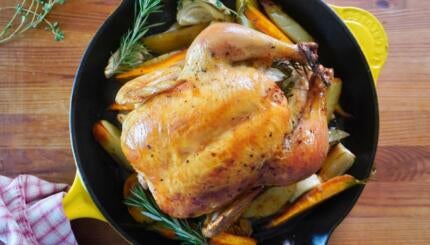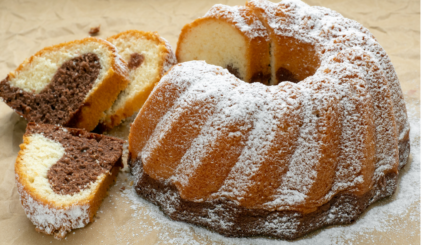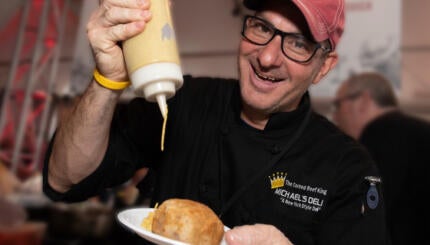When I think of the best meal I had while living in Italy, I think of the roasted capretto (or baby goat) that Antonio’s mother-in-law made for Easter dinner. It was arrestingly delicious. Inspired by that legendary feast, I make it with lamb, which is easier to find, a little bigger, and even more impressive.
This dish is a true centerpiece—a mic drop. A contented silence always falls over the table when everyone starts eating, as if they’re all paying respect to the lamb. This is a good weekend project: the lamb sits overnight, then spends hours in the oven, and every minute is worth it. As it roasts, it mainlines its flavors into everything else in the pan, creating its own rich gravy, which melds perfectly with polenta but can also be soaked up with a good, crusty bread.
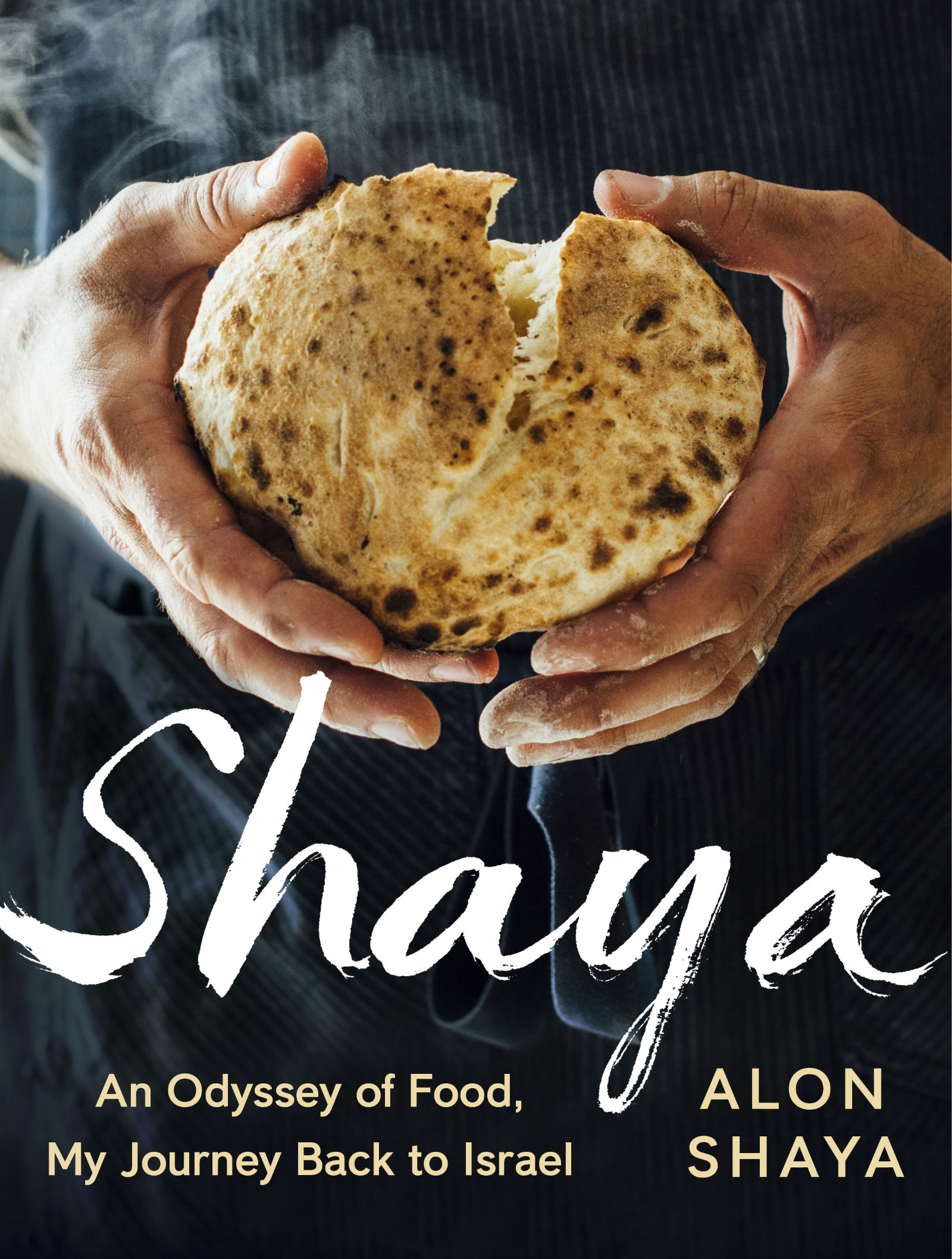
This recipe is excerpted with permission from Shaya: An Odyssey of Food, My Journey Back to Israel.
The Nosher celebrates the traditions and recipes that have brought Jews together for centuries. Donate today to keep The Nosher's stories and recipes accessible to all.
Ingredients
- 1 lamb shoulder (5 to 8 pounds), bone-in
- 2 Tbsp plus 1 tsp Morton kosher salt, divided
- 6 cloves garlic
- 2 to 3 sprigs fresh rosemary
- 2 yellow onions, coarsely chopped
- 2 large carrots, peeled and coarsely chopped
- 3 stalks celery, coarsely chopped
- ½ cup water
- 3 Tbsp tomato paste
- 3⁄4 cup red wine
- 2 oranges
- 1 cup Castelvetrano olives, pitted and halved
- 1 cup golden raisins
- 3 cups chicken stock
- 2 dried bay leaves
- 1 cinnamon stick
- 1⁄2 tsp red-pepper flakes
Directions
- Pat the lamb dry, and rub 2 tablespoons salt all over it. With the smooth, fatty side of the shoulder facing up, cut 6 slits into the top of the meat, spaced evenly apart, and deep enough to serve as little pockets. Tuck a clove of garlic and a 1-to-2-inch piece of rosemary in each one, ensuring that they’re hidden away and not exposed, then wrap the whole shoulder tightly in plastic and refrigerate overnight.
- Heat the oven to 400 ̊F with a rack in the lower-middle position. Scatter the onions, carrots, and celery at the bottom of a deep roasting pan, then pour in the water. Set a rack inside, and add the lamb shoulder, fatty side up. Roast for 50 minutes to 1 hour, rotating the pan after 30 minutes, until it’s starting to smell great and browning well on the edges. Lamb shoulders do vary in size, so check on it periodically, particularly if yours is on the smaller side.
- Pull out the rack with the lamb, and set it off to the side on a baking sheet. Stir the tomato paste into the chopped vegetables on the bottom of the roasting pan, using your spoon to break it apart gently, and roast for 8 to 10 minutes, until it’s just starting to caramelize. Pour in the wine, and return it to the oven for another 6 to 8 minutes, until the sauce is reduced by about half.
- Cut off the tops and bottoms of the oranges, then halve them horizontally and add them to the roasting pan, along with the olives, raisins, chicken stock, bay leaves, cinnamon stick, red-pepper flakes, and remaining 1 teaspoon salt. Set the rack with the lamb on top and press a sheet of parchment over the lamb, tucking the edges under. As best you can, since it’ll be hot, wrap the whole pan tightly with overlapping sheets of foil. The parchment and foil will work together to keep the moisture inside.
- Decrease the heat to 300 ̊F and roast for 5 to 6 hours, until the meat is extremely tender all over, and pulling off the bone. Again, lamb shoulder varies in size, so start carefully checking under the foil and parchment after 5 hours to ensure that it doesn’t dry out. If you can’t easily pierce it with a fork, re-cover and continue to cook for 30-minute intervals.
- When it is done, move the lamb to a rimmed baking sheet or cutting board to rest; remove and discard the sprigs of rosemary and the garlic, and fish out the bay leaves and cinnamon stick from the pan. With a ladle, skim and discard as much fat as you can from the juices in the pan, but try not to carry along too many of the spices or aromatics. Pour all that remains into a large tureen for serving.
- Carve the lamb shoulder near the table, so everyone gets the full effect. To do this, first trim and discard the thick yellow tendon on its side. Make a diagonal cut into the meat, following the little ridge on the shoulder blade and using the tip of your knife to loosen the meat gently along the bones, especially when you get to the ball joint. Do the same thing along the bottom, following the rib bones.
- Serve with pan juices ladled over the top, and preferably a side of creamy polenta.
